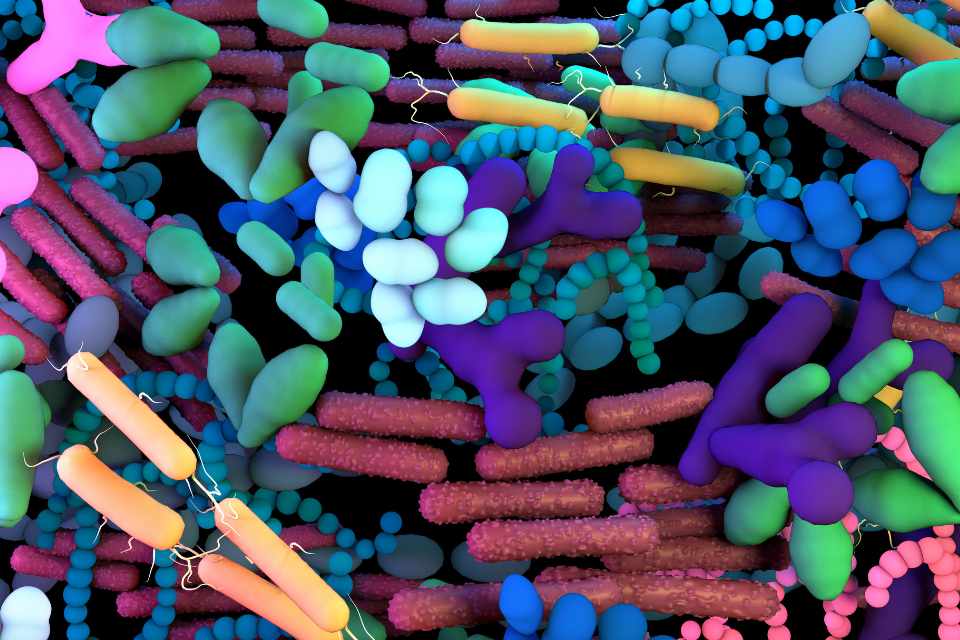This is the next in a series of blog posts about the 4R program for optimising your digestion and gut health. Here I discuss ways to repair a leaky gut. You can read the previous posts in the series by following the links below.
1 Optimise your digestive health
2 4R program – Remove the triggers
3 4R – Replace whats missing to optimise your digestion
4 4R – Reinoculate with probiotics
The fourth R in the 4R program is for repair.
So, once the factors causing gut inflammation have been removed. You’ve improved your digestion with supplements such as digestive enzymes, and you have added back some probiotics. It is now time to aid the repair of the gut lining to support the proper absorption of nutrients.
This post discusses the nutrients that help to repair a leaky gut and optimise gut health.
Fruits and vegetables
With the right nutrients available the gut lining is perfectly capable of regeneration and repair. One easy way to help the gut to repair is to eat plenty of fibre-rich foods such as fruits and vegetables. Along with some cold, water fatty fish, twice a week. These provide the materials needed to build a healthy gut lining with a protective layer of mucous.
One reason fruit and vegetables improve gut barrier function is that they are a rich source of dietary flavonoids. Flavonoids include substances such as quercetin, genistein and myricetin. These have been shown to improve tight junction integrity between the gut lining cells.
By the same token, herbal medicines that supply fibre or otherwise feed the gut microbes can also be beneficial. These include psyllium seed, marshmallow root powder and slippery elm powder. It is important, especially with psyllium seed to take the remedy with plenty of water. This allows the seed to swell and become gel-like and viscous.
Glutamine
The amino acid glutamine is a key nutrient for repairing the gut lining. It is vital for maintaining the structure and function of the gut lining. Glutamine is the main fuel for the cells lining the small intestine. Glutamine supplements also have other benefits.
Such as:
- increasing the size of intestinal villi
- stimulating the production of new gut mucosal cells
- protecting the integrity of the gut lining
In fact, studies suggest that glutamine may protect against mucosal damage caused by chemotherapy and radiotherapy.
There is a wide variation in dosage used in studies. But typically a dose for an adult might be 5g of L-glutamine, twice daily, for a month.
Bone broth contains glutamine and so it is a useful addition to the daily diet. It can simply be drunk as a beverage or it can be made into the base for a soup or stew.
Butyrate
The short-chain fatty acid butyrate improves gut barrier integrity through its effects on tight junctions. It can also regulate the immune system resulting in anti-inflammatory effects. Butyrate is produced in our gut by our own beneficial bacteria, especially Bifidobacteria. So ensuring plenty of fibre in the diet and adding in some fermented dairy or vegetables can give a good supply. Butyrate supplements are also available.
Vitamin D
Another nutrient that has been studied in respect of repairing a leaky gut is vitamin D. This vitamin has a key role in the regulation of inflammation of the gut lining. Whilst deficiency of vitamin D is linked to an increased risk of inflammatory bowel disease. A good source of vitamin D is cod liver oil.
Herbal remedies
There are also several herbal medicines known traditionally for healing the gut. Whether that is through promoting repair of tissue or calming inflammation. Herbs such as chamomile, liquorice and turmeric have long been used to calm gut inflammation.
We might also consider astringent herbs. Herbs with an astringent action inlcude green tea, raspberry leaf or ribwort. Other healing herbs include the vulnerary herbs such as gotu kola, calendula and yarrow.
For help using herbal medicines to repair a leaky gut contact your local medical herbalist or make an appointment with me using the schedule appointment button at the top of the screen.
If you enjoyed reading this final part of the 4R series of posts, you might also like my post:
Herbal remedies to heal skin ulcers








0 Comments